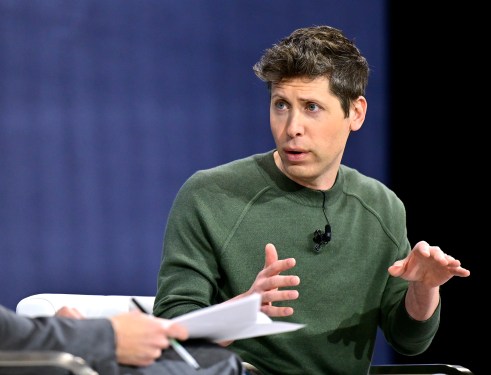AI in Focus: How Studio Ghibli Inspired Viral Creativity and Copyright Challenges

The recent launch of ChatGPT’s AI image generator has stirred a frenzy of creativity online, flooding social media with AI-generated images that echo the whimsical aesthetics of Studio Ghibli. This beloved Japanese animation studio, known for its enchanting films such as My Neighbor Totoro and Spirited Away, is now at the heart of discussions around copyright and AI technologies.
Within just 24 hours of the release, social media platforms witnessed a deluge of surreal reinterpretations of iconic figures and franchises—including stylized portraits of Elon Musk and scenes from The Lord of the Rings—crafted using the new features of GPT-4o. OpenAI’s CEO, Sam Altman, has even adopted a Ghibli-inspired profile image, prompting speculation about the capabilities of the AI in creating this unique style.
The timing of this development is particularly interesting considering Google’s recent unveiling of a similar feature within its Gemini Flash AI model. Just earlier in March, Google’s tool sparked controversy over its use to erase watermarks from images, provoking conversations about the ethical implications surrounding AI image manipulation.
Both OpenAI and Google have made strides to democratize the generation of content reminiscent of copyrighted works, with users simply inputting text prompts to generate stylized imagery. However, this raises a significant legal quandary: how these models are trained and whether it infringes on copyright laws.
Evan Brown, an intellectual property attorney, sheds light on the legality surrounding these developments, noting that while generative tools like ChatGPT do not directly infringe copyright by creating likenesses, the underlying issue remains. “They are operating in a legal gray area,” he states. Brown emphasizes that training models on copyrighted content poses questions about whether such actions fall under fair use.
Current legal battles also underscore this concern. Major publishers, including The New York Times, are actively pursuing lawsuits against OpenAI for allegedly training their models on copyrighted material without adequate attribution. Other firms like Meta and Midjourney are facing similar challenges, raising alarms about industry standards and practices.
An OpenAI spokesperson remarked that while the platform avoids replicating styles of individual living artists, it does permit broader studio styles, which complicates the discourse given the artistic lineage of studios like Studio Ghibli led by renowned creators such as Hayao Miyazaki.
The innovative spirit extends beyond traditional animation, with users experimenting to recreate various artistic styles, resulting in pieces that fuse cultural icons, such as a Marc Andreessen portrait styled as if crafted by Dr. Seuss. This trend not only showcases the versatility of AI but also highlights a budding culture of experimentation amongst users.
To delve deeper into the increasing competition in AI image generation, we tested several other popular models—including those from Google and emerging platforms—to assess their fidelity in reproducing Ghibli’s iconic animation. Findings indicated that OpenAI’s latest upgrade excels in accurately mimicking this distinct style.
The current wave of technological advancements in AI image generation represents a significant leap forward in what these tools can achieve, resulting in a marked increase in user engagement. OpenAI has noted the overwhelming demand for its image tool, leading to a temporary delay for free-tier users, illustrating the fierce interest in AI creativity amidst burgeoning legal scrutiny.
